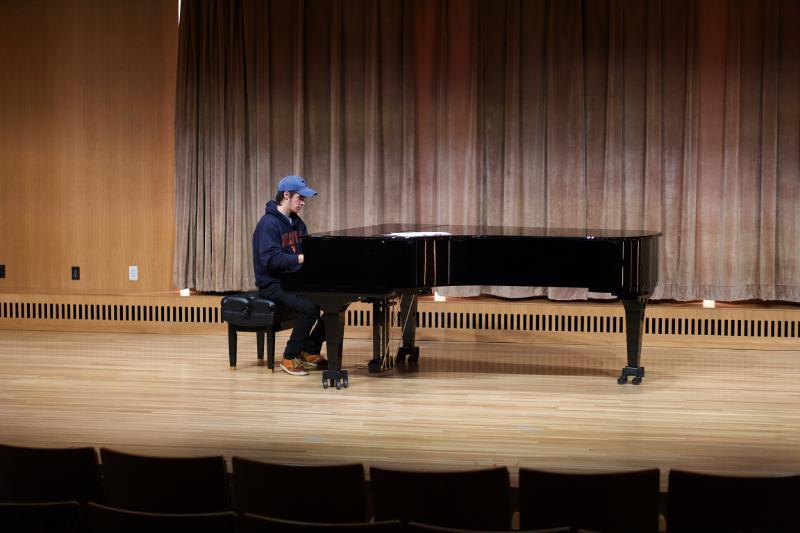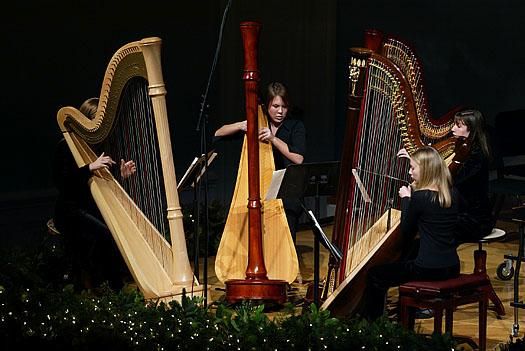Posted November 22, 2017 by Wheaton College
Tags:
Mahler, Strauss, and Rock n’ Roll
Jesse Dunn '18 is a composition major in the Wheaton College Conservatory of Music.
I started taking piano lessons at 6 years old, and it didn’t take long for music to become precious to me. After a few years of study, I had developed enough skill to improvise and write songs. I began investing in the best songwriters of the 20th and 21st centuries and explored the sound experimentations that trademarked rock and roll. I liked rap and R&B (good rap and R&B) and played bass in a Red Hot Chili Peppers cover band. The only thing I ever dreamed of doing was writing music, and although I was classically trained, the music I wanted to write couldn’t have been any further from the classical tradition.
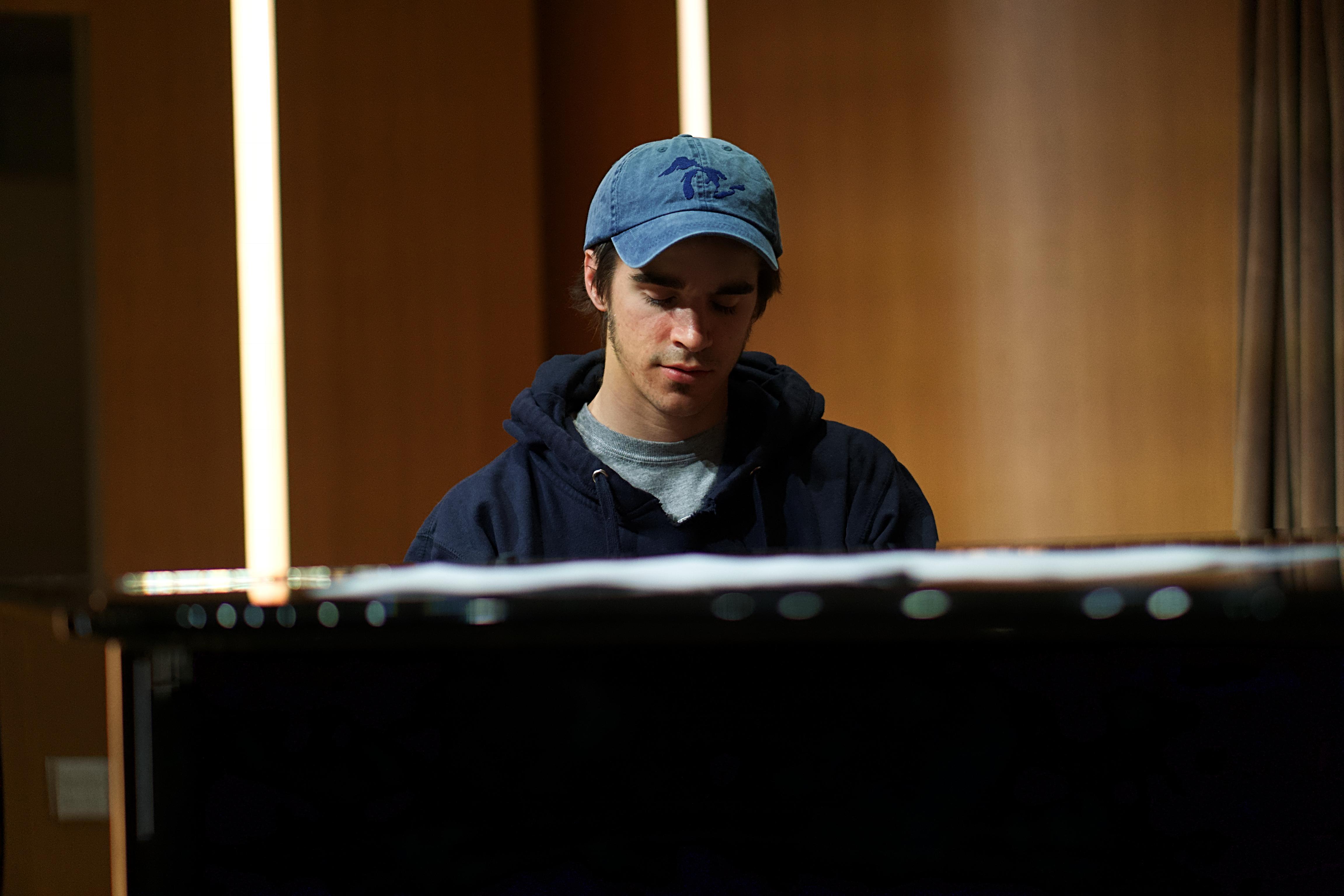
When I visited Wheaton, I was thrilled to meet so many people who shared my passion for music, and I was excited to enter into a rigorous atmosphere that emphasized the study of music above all disciplines.
At the same time, I was experiencing a lot of anxiety and doubt about my place within the conservatory setting. Would there be room for me and my non-classical influences? What if I wanted to start a rock band or perform as a singer-songwriter? Would all my favorites be looked down upon? Would my Jimi Hendrixes and Fleetwood Macs be considered illegitimate? Even with these fears and reservations, the high standards and spiritual presence on Wheaton’s campus ultimately won me over, and I was forced to face these concerns.
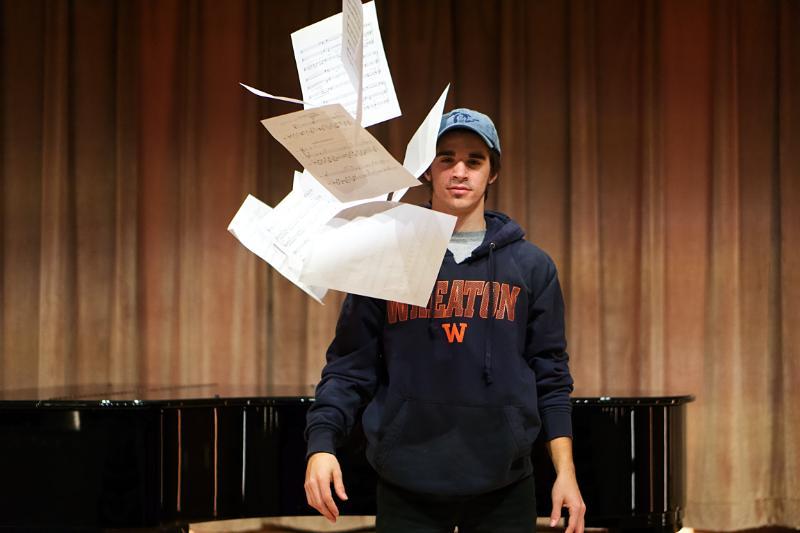
When I began at Wheaton, the other freshmen I was rubbing shoulders with all seemed rooted in the classical tradition. It seemed like I was the only one who hadn’t been introduced to the grandiosity of Mahler and Strauss, or the impenetrable spirit of Shostakovich. As a composition major, this caused me great anxiety. I felt utterly incompetent. But it was my perceived deficiency that ultimately led to one of the most formative experiences of my life regarding both my music and Christian stewardship in general: working with the composition faculty.
An important part of studying composition is participating in studio classes. Once a week, all of the composition majors and faculty gather to discuss, listen, and critique music—sometimes going beyond that and considering the roles and purposes of art as a whole. In this setting I found solace knowing that it didn’t matter what style of music I grew up with; no genre of music was unfit for exploration or unqualified to serve as an influence. With this in mind, I was able to bring ideas and sketches that strongly resembled the spirit and drive of rock and roll, indie singer-songwriter, and other non-classical genres into my lessons. I was encouraged to keep exploring different styles and to interpret them in convincing ways.
I was even given a long list of composers to listen to who have written contemporary music with this flavor long before I ever thought of it.
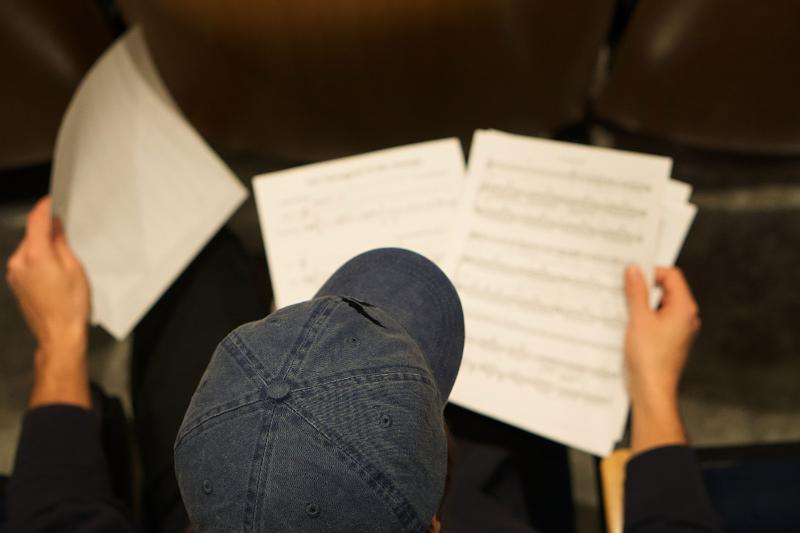
My professors were happy to consider my ideas and to help guide my compositional process within my own unique style. My non-academic music was also welcomed. I once mentioned that the rock band I was the frontman for had just finished an album. A few of the faculty asked for a copy and even sent me an email with their remarks! The limited exposure to classical music that I thought would be a hindrance to my college experience was actually considered to be simply a unique and valued musical perspective.
The composition faculty, like the rest of the faculty at Wheaton, expect their students to meet their high standards, but in the process of teaching how to steward God’s gifts, they maintain an open mind and welcome all backgrounds and influences.
